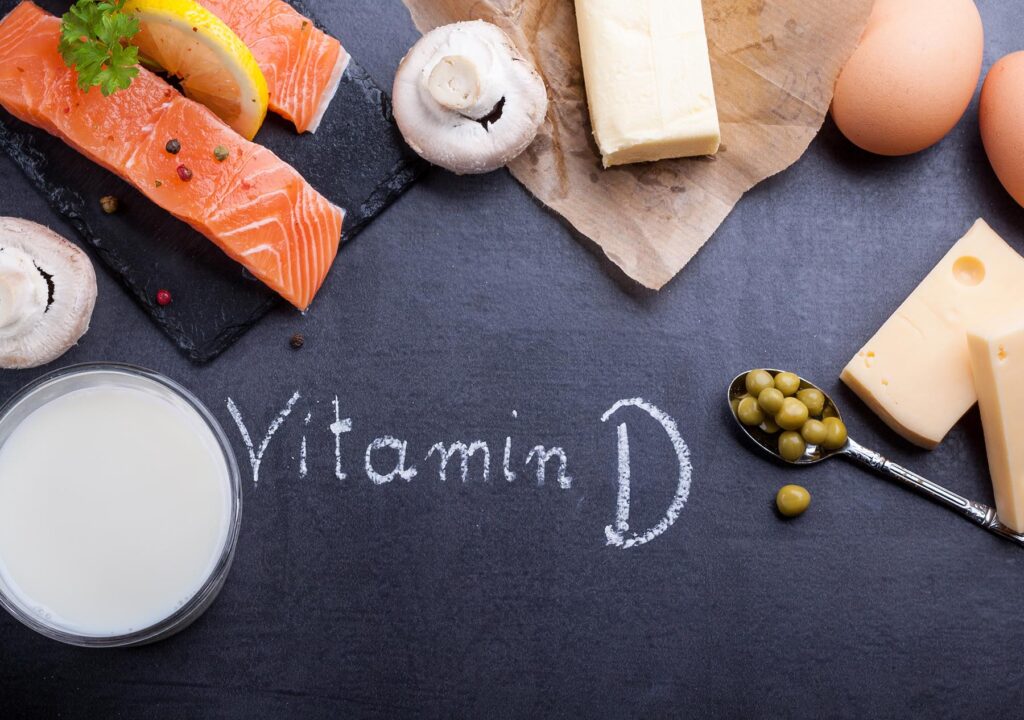Mind. Body. Spirit.
Vitamin D: A Very Important Part of Your Day
It seems like everyone is talking about vitamin D and our lack of it. I hope today to provide an overall synopsis of vitamin D, it’s importance for daily health, and how our bodies can obtain it. Vitamin D acts much like a multifunctional hormone or prohormone as it contributes to multiple processes in the body. We can get vitamin D three ways, through direct sunlight without sunscreen, certain foods, and supplements.

Some things vitamin D can help with:
- Cardiovascular and blood pressure health
- Immune system (research has shown vitamin D helps reduce your chance of catching viruses, flu, and colds)
- Bone health (research has shown vitamin D helps reduce osteopenia/osteoporosis, teeth problems, and fractures)
- Endocrine system (research has shown a reduction of AIC levels in Type 2 Diabetes)
- Cognitive/Brain health (research has shown vitamin D helps reduce depression and cognitive decline and dementia as we age)
- Cancer prevention (research has shown vitamin D can reduce risks of primarily colon, rectal, and breast cancers)
Deficiency of vitamin D as per research can place a person at more risk for the above issues. In my work with general and surgical weight loss, many of my clients/patients have vitamin D deficiency. The vitamin D Council and Endocrinology recommendations for vitamin D are much higher than the RDA’s and upper safe limits for the general population. The optimal recommendation for labs is to keep your D level between 40-70 to prevent bone breakdown, keep your immune system strong against colds and viruses, reduce cancer risk, and reduce seasonal affective disorder in the winter.
The highest vitamin D foods that provide 101-685 IU per serving are:
- Rainbow trout
- Salmon
- Light Tuna
- Herring
- Canned Sardines
- Tilapia
- Flounder
- Unsweetened Soy Milk
- Cows Skim 1% Milk
- Plain low fat/nonfat Yogurt
- Cheese
- Mushrooms raw
- Fortified orange juice
- Unsweetened Almond and Rice milk
Most people need at least 2000 IU -4000 IU of vitamin D3 per day to prevent low levels. If you have had bariatric surgery, or have been diagnosed with malabsorptive diseases like Chron’s, Ulcerative Colitis, Cystic Fibrosis, Kidney, and or Liver disease, your needs may be higher. Medications like laxatives, steroids, cholesterol lowering medications, seizure control medications, Orlistat, and Rifampin can also lead to lower vitamin D levels. Make sure to get your vitamin D level checked every 6-12 months to ensure you are maintaining a 40-70 level in blood work. Calcium is also necessary to open the cell door for vitamin D absorption. Calcium needs vary among individuals of varying age and medical diagnoses. As you can see above it is very hard to get enough vitamin D in to maintain a 2000-4000 IU level daily. This is where supplementation is usually necessary to make up the difference. I always recommend a USP (ensures quality, purity, potency) and GMP (Good Manufacturing Process) D3 supplement to ensure optimal quality and good regulatory measures.